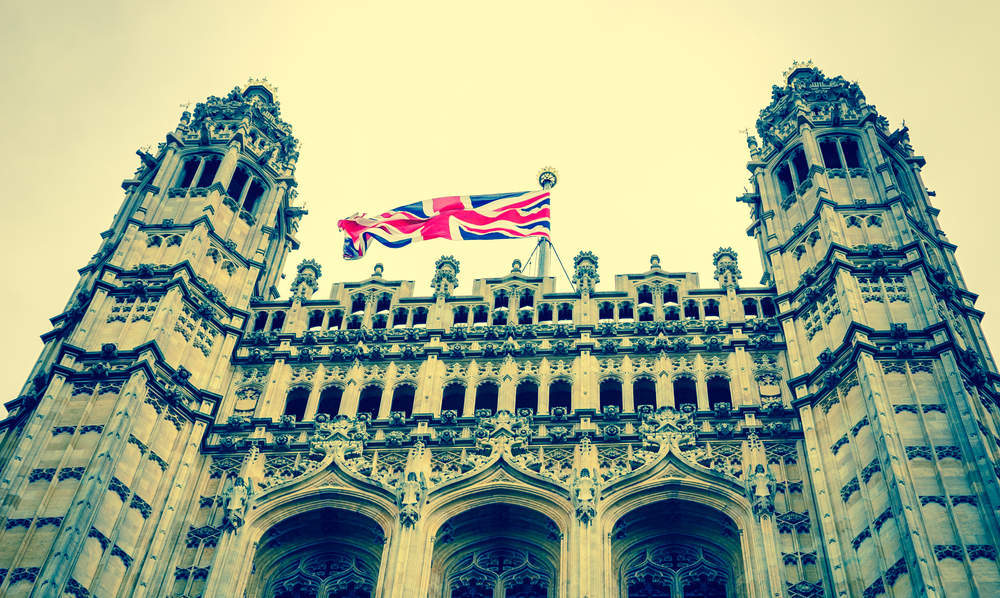
“This is the most serious crisis that the UK has faced since the Second World War,” professor Anthony Grayling, one of the most powerful advocates of the case against Brexit told Verdict.
The philosopher and master of the New College of the Humanities (NCH) said it is “scandalous that parliament has been sidelined” by the government when it comes to deciding on Britain’s future relationship with the European Union (EU).
Earlier this week, British prime minister Theresa May outlined the details of Britain’s divorce from the EU in a much anticipated speech.
She confirmed that Britain will not seek continued membership of the single market or the customs union, but said that MPs will be able to vote on the final Brexit deal.
“l will put the final deal that is agreed between the UK and the EU to a vote in both Houses of Parliament, before it comes into force,” she told the audience at Lancaster House in London on Tuesday.
Soon after the speech, it became clear that May’s promise to grant MPs the right to vote on the Brexit deal was misleading. Brexit secretary David Davis said that the UK would leave the EU — even if parliament rejected the deal.
How well do you really know your competitors?
Access the most comprehensive Company Profiles on the market, powered by GlobalData. Save hours of research. Gain competitive edge.

Thank you!
Your download email will arrive shortly
Not ready to buy yet? Download a free sample
We are confident about the unique quality of our Company Profiles. However, we want you to make the most beneficial decision for your business, so we offer a free sample that you can download by submitting the below form
By GlobalData“The referendum last year set in motion a circumstance where the UK is going to leave the European Union, and it [the vote] won’t change that,” Davis declared.
The government’s legislative bill is likely to be as short as possible in an effort to limit the potential backlash from so-called Remainers in the Commons and the Lords.
Next Tuesday, the Supreme Court will deliver its judgement on whether ministers or parliament hold the legal right to trigger Article 50 of the Lisbon Treaty, the official EU exit clause.
The government appealed to the Supreme Court after the High Court ruling in November that parliament’s approval is required to trigger Article 50.
Grayling agrees that pushing ahead with Brexit without parliament’s consent would be contrary to the law and the country’s constitution.
“May has prepared a short two-line bill aimed at hustling parliament past the point of debating whether or not there should be a Brexit process at all. It is a deliberate subversion of what our judges have said is lawful.”
It was thanks to the folly of former British prime minister David Cameron that the UK is in such a precarious position. He behaved irresponsibly by calling the referendum in the first place, according to Grayling.
Facing pressure from right-wing Tories, Cameron “called it [the referendum] to shut up certain elements of the party,” he insists.
As for the referendum campaigns, Grayling was disappointed by both sides, calling the Remain campaign “woeful” and the leave campaign “utterly unscrupulous.”
Prominent Brexiteers suggested a weekly £350m sum paid to the EU could instead go to the NHS. Leading vote leave advocates have since admitted the financial pledge, central to their victory, was a “mistake.”
However, despite the many falsehoods which permeated both campaigns, Brexit appealed to significant proportions of the electorate with genuine concerns surrounding the economic, political and social consequences of continued EU membership at a time of growing antagonism towards immigration.
“The referendum took place in the middle of a massive refugee crisis. Austerity policies have made a lot of people disaffected and created a lot of resentment. It couldn’t have been more ill-timed.”
Grayling admits that the EU has its flaws, but such an ambitious project is bound to bring with it some difficulties and he believes there is widespread ignorance of the benefits Britain has reaped from over four decades of membership.
He is convinced that the public are being misled by a process which fails to hold the government to account. Parliament is sovereign, and yet May disregards the views of MPs on Brexit.
“Our parliamentarians have yet to stand up and say ‘hello, we are representatives of the people, we have a duty here.’ There should be a full vote in parliament now on the question of whether or not we should do this [leave the EU] at all.”
Grayling is unwavering in his insistence that Britain’s departure from the EU would be a dangerous mistake — but without a binding parliamentary vote, it would also be a betrayal to democracy.







